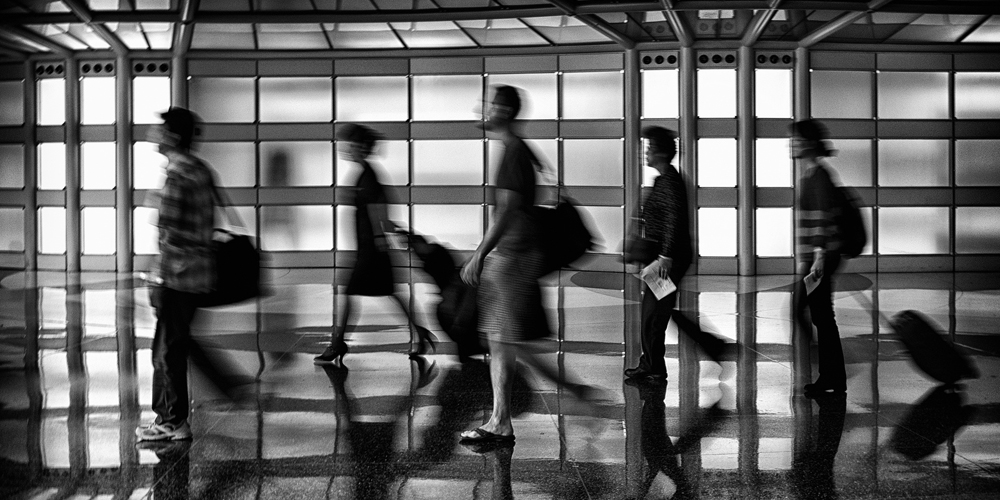Immigration anxiety
Immigration anxiety is the feeling of heightened discomfort and uncertainty when thinking about people who have moved to your country. This often also includes people native to your country, but who are assumed to be foreign due to a difference...
Immigration anxiety is the feeling of heightened discomfort and uncertainty when thinking about people who have moved to your country. This often also includes people native to your country, but who are assumed to be foreign due to a difference in language, skin colour, religion, or culture.
The causes of immigration anxiety in Britain are both vast and deeply rooted. On the one hand, we have: a shortage of housing, a lack of well-paid jobs, a struggling NHS, poor public transport (particularly outside of London), and an education system in crisis. These are problems that have gradually worsened over the past decade. On the other: a clear, consistent narrative in much of the media that has demonised Muslims, eastern Europeans, and people of colour, amongst others. It should be no surprise that many people believed Nigel Farage et al when they scapegoated these groups for public services and infrastructure reaching breaking point. His rhetoric was regularly mocked as racist, but its substance: the belief that immigrants are responsible for a lower quality of life, was often unchallenged by the left and reinforced by the right.
The phrase “legitimate concerns about immigration” is often repeated, despite the fact that the highest support for Brexit was usually found in areas with the lowest number of migrants. Increasingly, it appears that “legitimate concerns” are a combination of immigration anxiety: a fear of the unknown Other, tied with the desperation caused by austerity, and a lack of wealth distribution.
But how does immigration anxiety manifest itself? In 2011, almost 60 per cent of Britons thought there were “too many” immigrants. More recently, this phenomenon has been linked to support for Labour in poorer communities waning, with votes being absorbed by Ukip. This has been going on for at least a decade, but increased dramatically in the three years before the EU referendum. Brexit itself, based on Lord Ashcroft’s polling, can be largely attributed to concerns about immigration. The sharp rise in hate speech and hate crimes during and after the referendum were and are inexorably linked to immigration anxiety.
So what can be done? More specifically, what can the left do to alleviate anxiety around immigration in Britain?
First: begin with education. The biggest reason for net migration to the UK is further study. The Russell Group of leading universities estimate foreign students contribute £2.5 billion a year in fees, which helps to finance higher education for domestic students.
Between 2000 and 2011, immigrants who arrived after 1999 were 45 per cent less likely to claim tax credits or state benefits than natives. In the same period, European Economic Area migrants contributed a net £20 billion (tax revenue minus public spending), while non-EEA migrants contributed just over £5 billion, and UK natives contributed a net loss of £616.5. People need to know these facts, however uncomfortable it may be to have prejudices challenged, because evidence can cut through ignorance.
Second, we must embrace devolution as a way to decentralise the economy, and guarantee equal spending and investment, particularly in the post-industrial city regions. Next year’s mayoral elections look promising for Labour, which will provide the opportunity to counter austerity.
Third: investment. Devolution can provide the opportunity to secure funding for transport, healthcare, education, and the environment. This will in itself create jobs, but also incentivise businesses, large and small, to set up shop outside of London, a city with high investment and public spending where a majority voted for remain.
Fourth, this allows for job creation. There’s no evidence to show any correlation between immigration and unemployment, but it can push down wages. However, it doesn’t have to. The US experienced large-scale immigration during the twentieth century, and this was consistent with rising real wages. One way to stop wages being undercut would be through stronger trade union bargaining powers. Above all, we need a real living wage to make up for the loss of tax credits and to reduce poverty.
Fifth, more jobs and infrastructure mean a greater need for housing, but also more money build it with. There’s an abundance of brownfield sites, particularly in poorer areas of cities. This is because big businesses can buy up land and leave it undeveloped without any penalty. We must stop this, and instead allow councils to buy the land to build social housing. The property ladder being inaccessible affects more than just millennials. Insecurity about housing, and the impossibility of saving while renting affects people of all ages across the country, and exacerbates resentments and divisions.
Finally, the UK is very strict on who can come to work here. Immigrants tend to be more highly skilled than native workers. Because of this, immigrants, particularly those from the EU, contribute significantly more to the country’s economy than they take out, as well as much more than native British people do. The idea that immigrants are rinsing the benefits system simply isn’t true. The left cannot pander to anti-immigrant rhetoric. Election after election has shown it doesn’t win Labour any votes. By campaigning to educate and promote the benefits of immigration, the left can take the reins of this toxic narrative. Through immigration, we can invest in our public transport, our schools, and the NHS; we can lower unemployment; and we can end the housing crisis.
